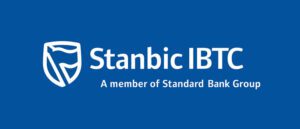
UBA delivers N70bn profit in H1 2022, up by 16%
United Bank for Africa Plc has released its interim consolidated and separate financial statement for the period ended June 2022.
The report shows that the bank raised its profit in the first half of the year by 16 per cent to record N70.33 billion from the N60.58 billion in the first half of last year.
This is in the face of increasing inflation which the economy continues to battle.
Recall that Nigeria’s inflation rate in the month of July 2022 rose to a 17-year high of 19.64 per cent compared to 18.6 per cent recorded in the previous month of June 2022, according to the National Bureau of Statistics (NBS).
During the period, the bank increased interest income by 15.6 per cent to stand at N257.4 billion against N222.6 billion in the same period of 2021 as investment securities in treasury bills, bonds and others rose.
The interest expenses was valued at N79.9 billion in the first half of 2022 from the N74.6 billion in the first half of 2021 as the banks recorded more deposits from customers during the period while the net interest income stood at N177.46 billion.
Fees and commission income grew to N96.4 billion in H1 2022 from N74.1 billion in H1 2021 on the back of rise in credit-related fees and income, electronic banking income, and trade transaction income amongst others.
Notably, credit-related fees and commission income exclude the amount included in determining effective interest rates on financial assets carried at amortised cost. Credit-related fees are taken over the life of the related facility, whilst transaction-related fees are earned when the service is rendered.
Also, Electronic banking income represents income taken on transactions processed via electronic channels such as ATM, POS, mobile banking as well as credit and debit card transactions while trade transactions income entails one-off charges as related to letter of credits and other trade businesses which are excluded from those included in determining effective interest rates on those carried at amortised cost.
Similar to this, the group recorded an increase in terms of E-banking expenses and trade-related expenses, pushing the Fees and Commission expenses to N36.5 billion in H1 2022 from N28.3 billion in H1 2021.
Operating income was valued at N9.15 during the study period from N9.5 in 2019. This consists of dividend income at N3.5 billion, other income at N5.19 as well as rental income and gains on disposal of property and equipment. Meanwhile, the other operating income of the Group includes the sum of N3.883 billion remeasurement gain from the initial 49 per cent investment in UBA Zambia.
The employee benefit expenses rose to reach N52.3 billion in H1 2022 from N42.6 billion in H1 2021 as the group noted that it continues to invest in staff training.
It stated, “The Bank encourages participation of its employees in arriving at decisions in respect of matters affecting their well-being. To this end, the Bank provides formal and informal opportunities where employees deliberate on issues affecting the Bank and employees’ interest, with a view to making inputs to decision thereon.
“The Bank places premium on the development of its manpower. In addition to the routine online Executive Chat, wherein employees interact with the Management to discuss issues of customer and employee satisfaction, the GMD/CEO operates an open-door policy and encourages employees to channel suggestions and complaints to him as may be required.
Other operating expenses such as Fuel, repairs and maintenance was up from N13 billion to N16.7 billion, banking and sector resolution cost was up to record N31 billion from N27 billion amongst others.
Total assets increased from N8.54 trillion in H1 2021 to N9 trillion in H1 2022.
Basic and diluted earnings per share was up from N1.69 in H1 2021 to N1.98 in H1 2022.



